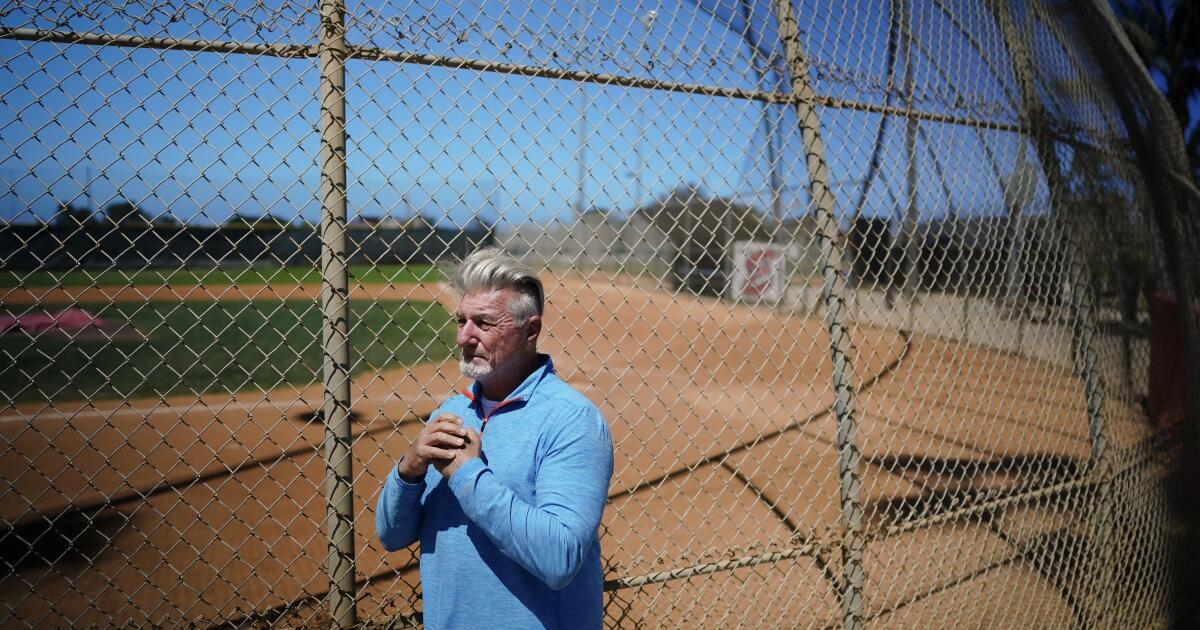Would he do it all over again?
That was the one question I wanted to ask Benny Gallo. He wanted to talk baseball.
Baseball is not what he does. It is who he is.
It is the wonder at a glimpse of a freshly mowed field, the pride in identifying a teenager that just might be good enough to make a living playing the game, the camaraderie among colleagues who sacrifice nights and weekends for what can be less of a job and more of a calling.
“The energy of baseball, and the people that are in baseball, that’s really contagious,” Gallo said. “You are in your element.”
For Gallo, that is all in the past tense. His life in baseball ended three years ago, when the Washington Nationals fired him as one of their scouts. The Nationals had required their employees to get the COVID vaccine. He refused.
He sued. The Nationals had advised employees they would consider “reasonable accommodation” for employees with a “sincerely held religious belief.”
In his lawsuit, Gallo cited in part his convictions “as a devout Christian regarding the sanctity of his physical body.” The team had told him it “recognizes and respects” his religious beliefs but could not accommodate him because not getting vaccinated meant he would “pose an unacceptable risk to the health” of those with whom he would interact.
In advance of a potential trial, U.S. District Court Judge Amit Mehta ruled that the Nationals could challenge the sincerity of Gallo’s religious beliefs. The Nationals’ attorneys did just that.
“I had to go through all the reasons why I went against the church recommendations,” Gallo said. “I’m like, ‘I don’t agree with what the Pope is telling me to do.’ ”
In the end, there was no trial. In August, two years and four months after Gallo filed suit, he and the Nationals agreed to a confidential settlement. He would have had to wait additional months or years before an actual trial, and he said the nonprofit advocacy group funding his lawsuit had expressed concern about how long the case was taking.
“I would have loved to have fought it all the way to the Supreme Court,” Gallo said, “but reality sets in.”
Gallo did not get his job back with the Nationals. He remains out of baseball.
He drove from his home in Encinitas to Orange County one day last spring, an unemployed scout who just wanted to take in a high school game that featured Harvard-Westlake shortstop Bryce Rainer, soon to become a first-round draft pick.
“Really talented,” Gallo said. “You could see this guy is legit.”
Gallo’s stance on vaccinations might not trouble a team today.
The Nationals did not return a message asking whether the team still mandates COVID vaccinations for their employees, but Major League Baseball does not, according to a person familiar with the situation but not authorized to speak about it. In 2021, MLB required COVID vaccinations for employees in the league office, the person said.
Over the past three years, 19 states have passed laws regarding exemptions from COVID vaccinations, including 10 that require private employers to exempt anyone citing religious reasons in declining the shot, according to the National Academy for State Health Policy.
Gallo wonders if his refusal to get the vaccine might explain why he cannot get a scouting job, or even an interview. However, as Gallo acknowledges, this is not a good time for any scout to be looking for work.
“You have a better chance of getting a seat on the next space shuttle than getting a job any more,” he said.
He is 66. He took note of the lawsuit filed against MLB last year by 17 former scouts, alleging age discrimination. The suit has expanded to 35 scouts, but no trial date has been set.
In the data revolution, teams often choose to supplement — or replace — scouts with video that can be evaluated by analysts in an office.
Just last month, MLB announced a deal with a Swiss technology company that the company said would “transform player talent scouting” by providing video-driven analysis from 20,000 professional, amateur and international games each year to the league’s 30 teams.
Life was simpler in 1980, when Gallo was picked in the same draft as Darryl Strawberry.
“He was 1,” Gallo said, laughing. “I was 396.”
He played. He coached. He scouted. Then he refused the vaccine and essentially exiled himself from the sport he loved.
He sold cars. He drove for Lyft. He got certified as a personal trainer. He is thinking about bartending.
“I took my Social Security early and my baseball pension early, so I have that,” he said. “But it’s been hard.
“I miss baseball. I think that is where I belong.”
He looked directly at me.
“If someone told you that you couldn’t write any more,” he asked, “what would you do?”
No one told Gallo he couldn’t scout any more until he refused the vaccine.
“If someone thought that taking the vaccine was the right thing to do, for whatever reason, that’s fine,” he said. “But, for me, what I did was the right thing to do.”
So, the question I had waited to ask: Knowing what he knows now, would Gallo do it all over again?
“I would do it over again.”
